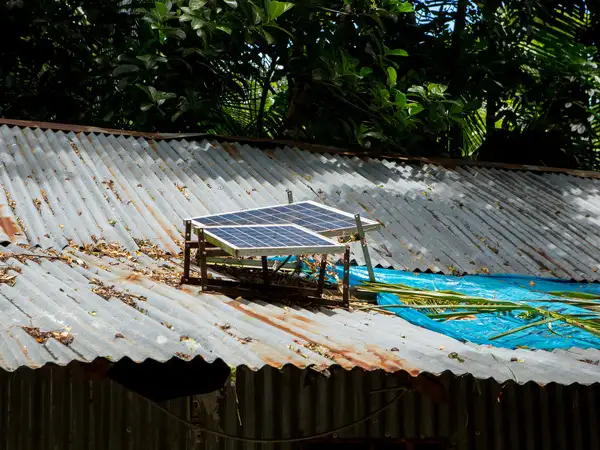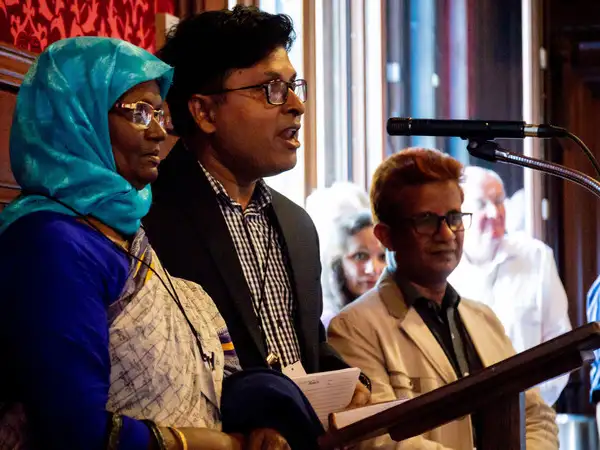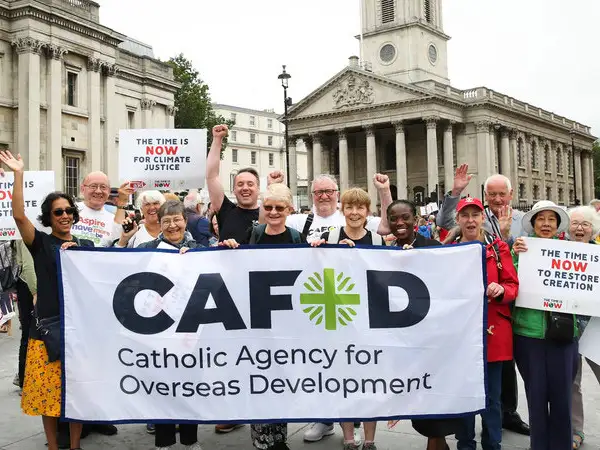


Solar panels in Bangladesh
We are out of time for treating human and environmental needs as two separate and competing priorities. It is time to create decent and green jobs: work designed in a way that gives a decent livelihood to the worker, while counteracting environmental degradation and climate change. Designed in the right way, they can even be transformational: creating a ripple effect of positive change in the social, economic and environmental spheres.
These papers delve into the question of green and decent work drawing on thinking by CAFOD’s policy team.
Resources


Decent green jobs for marginalised economic actors - discussion paper
A framework for planning decent and green jobs in development interventions that identifies four lessons for planners, taken from six case studies that range from solar salt mining pumps in India to social housing in Zambia.

Jobs for transformation - discussion paper
A discussion paper that summarises the issues behind decent green jobs for a policymaker audience.

Decent and green jobs in Kenya (full case study)
CAFOD and partner organisation Jesuit Hakimani Centre set out to find out what decent and green work looks like to ordinary Kenyans in rural areas. We interviewed maize farmers, livestock traders, veterinary inspectors and egg farmers in four marginalised areas of Kenya. We were told that people depend on family in times of need, that the goodwill of the boss is crucial, that only the best workers get hired again tomorrow, and that group enterprises are a way to get ahead. People take care of their environmental wastes and are good at certain “circular economy” practices.

Decent and green jobs in Kenya (summary)
CAFOD policy and advocacy
CAFOD submits written evidence to parliamentary inquiries and consultations to support our global policy and research work.
Find out more about campaigning on social justice issues with CAFOD.



